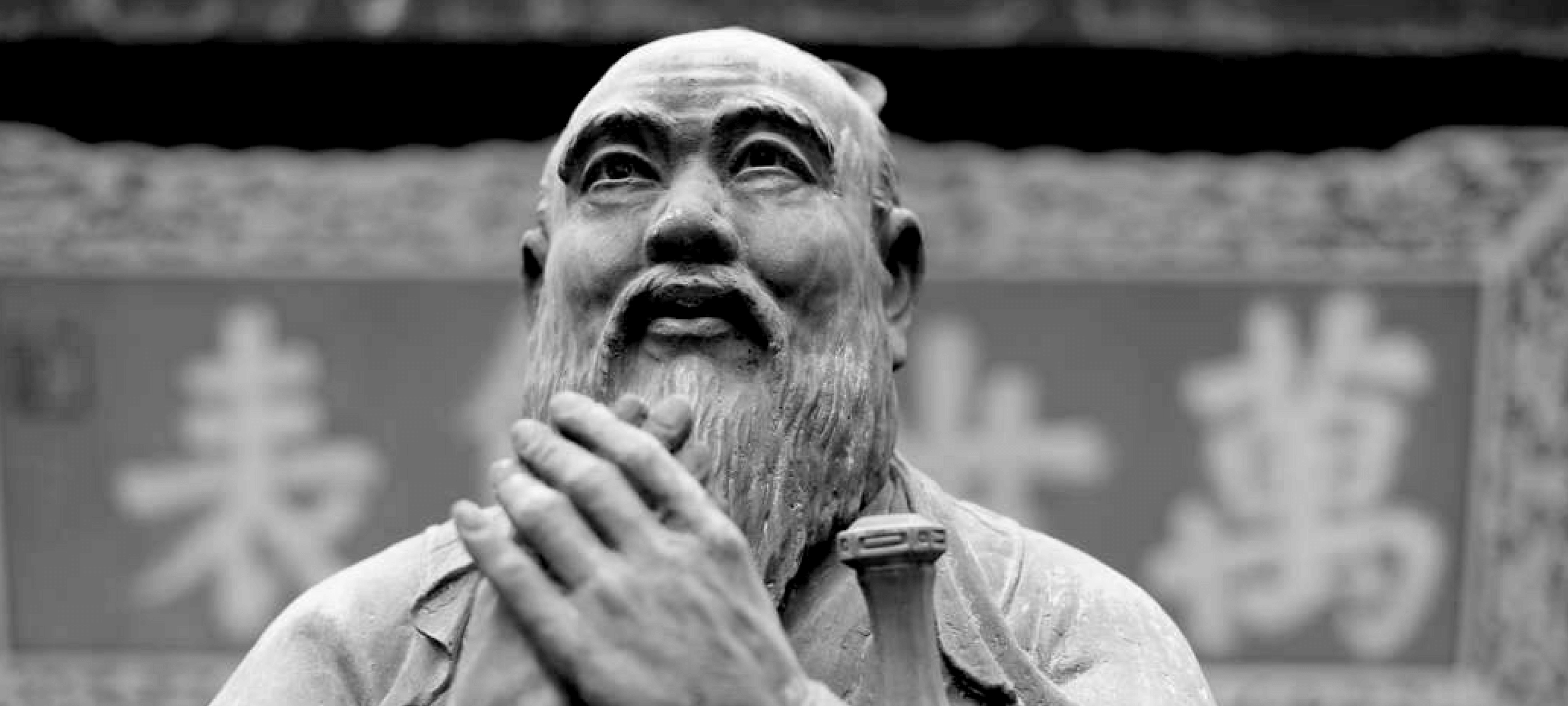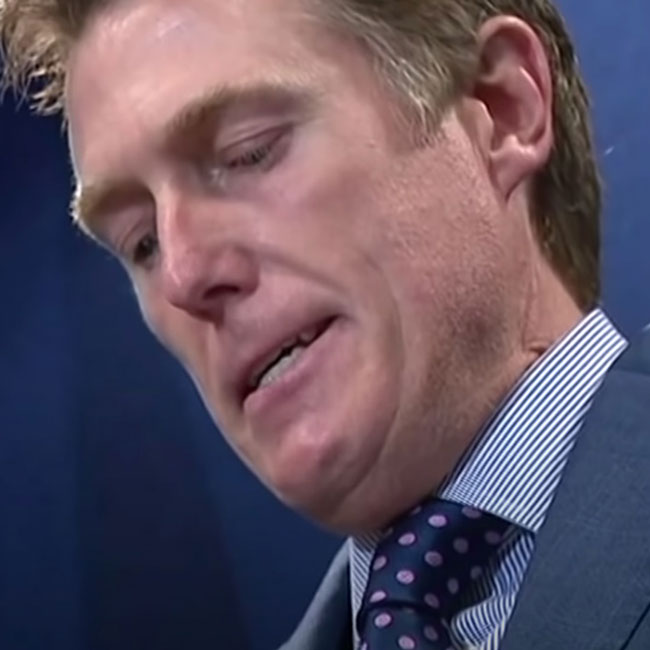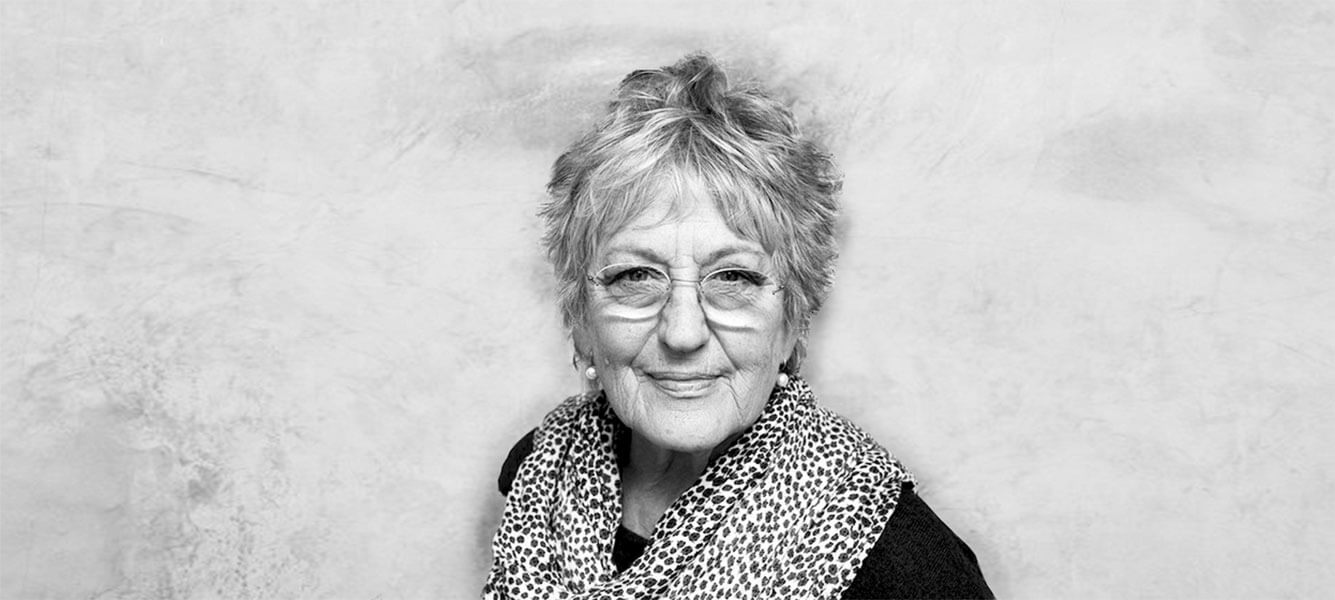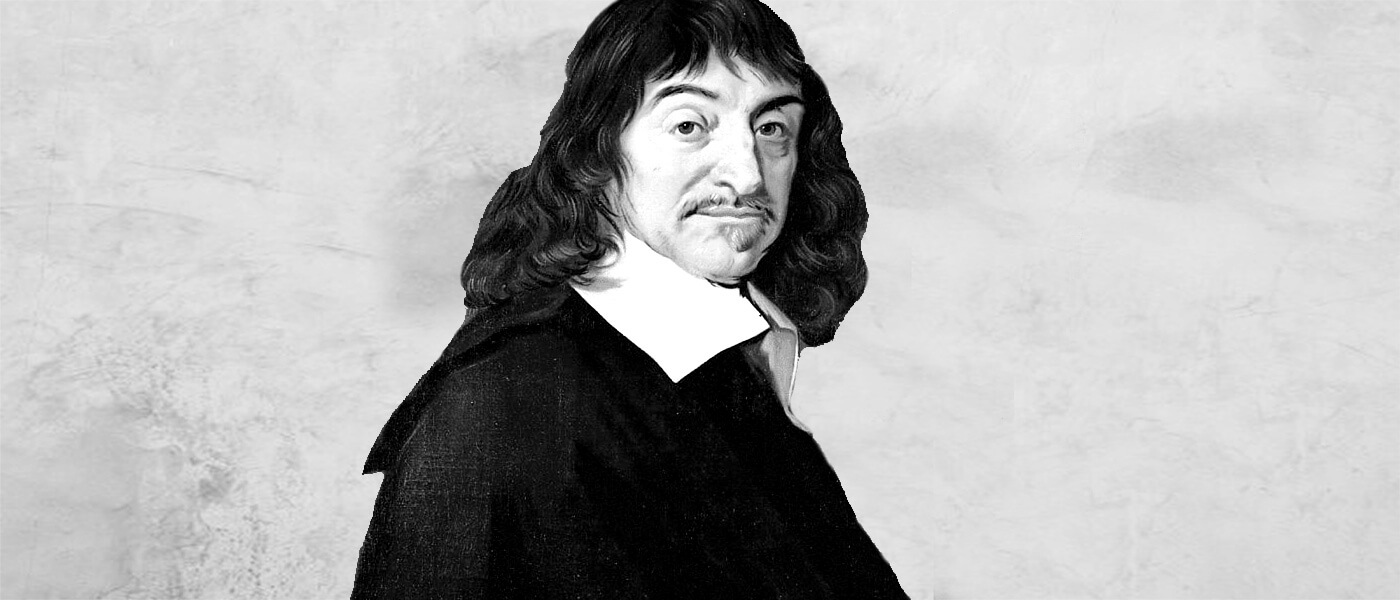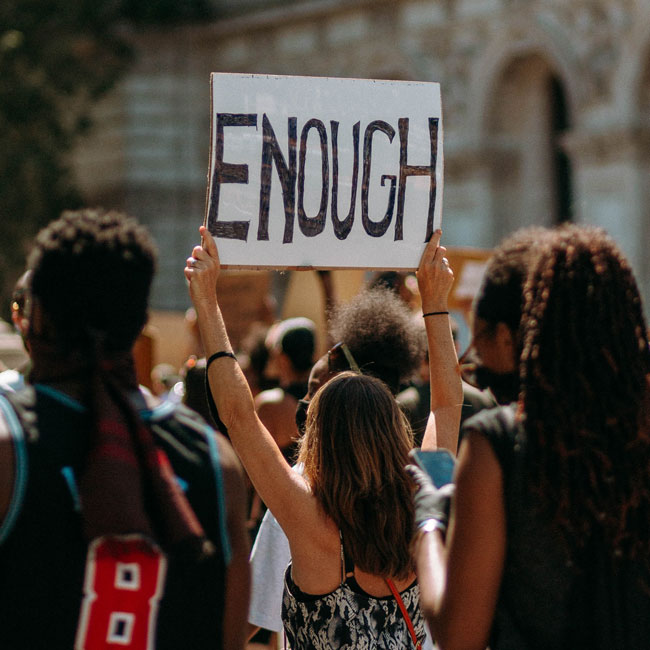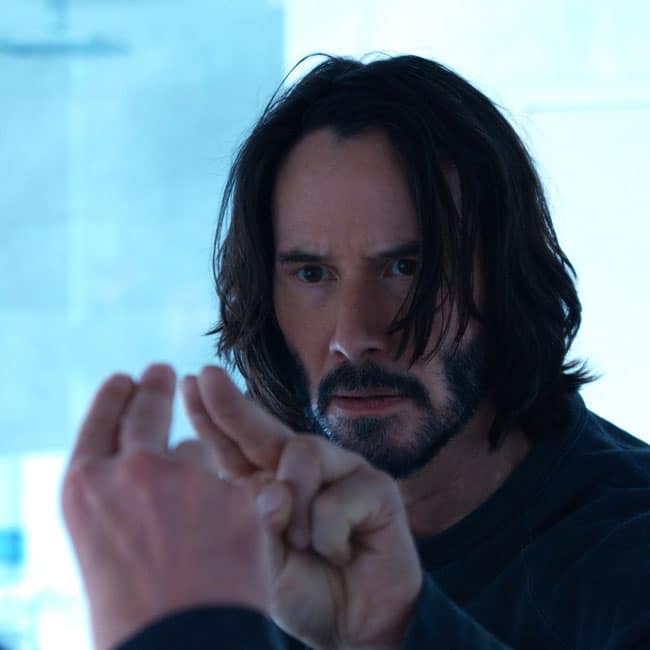The wonders, woes, and wipeouts of weddings

The wonders, woes, and wipeouts of weddings
Opinion + AnalysisRelationships
BY The Ethics Centre 20 SEP 2018
A wedding day – and all the kerfuffle beforehand – should come with a warning label. Ethical dilemmas ahead.
Decisions like: “Should I even have a wedding?” “Who should I invite?” “How much should I spend?” “Is this day really just about my partner and I?” “Do I have to invite my embarrassing uncle who drinks too much and flirts with the bridesmaids?” It can drive you spare.
Sure, taking the time to work things out won’t mean you know the right thing to do. But it’ll mean the decisions you come to will have been thoughtful and considered.
So if you’re stuck, start with purpose. What do you believe is the purpose of a wedding? And what actions are in line with that?
Purpose
Say a wedding is meant to be a celebration of the life that you two will build together. If that’s true, would you go into debt for that wedding, knowing that some of that future life will be spent paying it off? That answer really depends on you.
Would it make sense to skimp instead? Maybe. But if a celebration to you includes good food, drinks, live music, and cake, is that in line with the purpose of a wedding either?
“Hey,” you might be thinking. “A wedding isn’t about the two of us. It’s about everyone who’s been a part of our lives.” And fair enough! No one can argue with that. But if you’re juggling venue booking dates, your budget, and your dreams of having a week long wedding in Tahiti, remembering your guests and what they’d want can help you narrow it down. Sometimes multiple ceremonies and parties slim down people’s wallets and annual leave. Other times, it makes for a dream come true. You know your guests – and your purpose – best.
Wedding dilemmas splitting you in two? Book a free appointment with Ethi-call. A non-partisan, highly trained professional will help you see through chiffon to make decisions you can live by.
Duties
These same questions carry over into duties. Maybe you’re deciding who to invite and who not to. Remembering your duty to yourself, your partner, and your guests can all provide different perspectives. If you think the life you two will have together won’t include distant relatives or friends (especially relationships that were difficult or abusive), would it make sense to have them there on your wedding day?
But if you believe you have a duty to these people to invite them – be they family, old friends, or people you just need to invite – you might feel differently. No matter what you decide it’s worth asking, if you want to keep your guests happy and comfortable, would inviting difficult or disruptive people prevent that?
Consequences
These days, people aren’t the only things we’re concerned about. The impact of our weddings on the environment is something we’re much more conscious of. You might have wanted three thousand silver helium balloons on your wedding ever since you were a child, but you also just watched War on Waste and know that balloons end up in the tummies of lots of birds and turtles. Does the benefit outweigh the harm?
A good way to test if you’re cutting yourself too much slack on something you’d judge others for, is to shine it under the sunlight test. Would you still do it if it’d be on the front page of the newspaper tomorrow?
Character
As with anything, it’s worth considering whether it presents you as the type of person you believe you are – and living the values you and your partner share. Does your wedding display qualities you strive toward, like thoughtfulness, fun, and generosity? Or does it paint you as selfish, unprepared, and demanding? If the wedding you and your partner plan are inspired by shared values, chances are you’re on your way to plan a wedding that reflects these aspirations.
A wedding holds a lot of symbolism because of its importance in culture, religion, and history. Of course, it’s also fraught, often for the exact same reasons. If you’re in a “non-traditional” relationship or you disagree with marriage altogether, you might feel stuck between a rock and a hard place.
Does a wedding fit with the kind of person you want to be? Do you feel a sense of duty – to yourself, to your family, to your wider community, to social media, to God – to have a wedding? Do you believe weddings give you something you can’t get anywhere else? What about the specific traditions that make you ask, “Should I even have that?”
Being respectful of weddings and what they symbolise can make you think about how to make it your own.
Oh, and one final thing for anyone reading this. If you aren’t even sure you want to be with your partner, don’t have a wedding. The risk of a painful, humiliating, and expensive mistake is far too high.
Ethi-call is a free national helpline available to everyone. Operating for over 25 years, and delivered by highly trained counsellors, Ethi-call is the only service of its kind in the world. Book your appointment here.
Follow The Ethics Centre on Twitter, Facebook, Instagram and LinkedIn.
Ethics in your inbox.
Get the latest inspiration, intelligence, events & more.
By signing up you agree to our privacy policy
You might be interested in…
Explainer
Relationships
Ethics Explainer: Epistemology
Opinion + Analysis
Relationships
The ANZAC day lie
Opinion + Analysis
Relationships, Society + Culture
In Review: The Festival of Dangerous Ideas 2018
Big thinker
Politics + Human Rights, Relationships
Big Thinker: Confucius
BY The Ethics Centre
The Ethics Centre is a not-for-profit organisation developing innovative programs, services and experiences, designed to bring ethics to the centre of professional and personal life.
When human rights complicate religious freedom and secular law

When human rights complicate religious freedom and secular law
Opinion + AnalysisPolitics + Human RightsRelationships
BY Simon Longstaff 23 AUG 2018
As the Commonwealth Government ponders its response to the Ruddock Religious Freedom Review, it’s worth considering what people of faith may be seeking to preserve and what limits society might justifiably seek to impose.
The term ‘religious freedom’ encompasses a number of distinct but related ideas. At the core, it’s freedom of belief – in a god, gods or a higher realm or being.
Many religions make absolute (and often mutually exclusive) claims to truth, most of which cannot be proven. Religions rely, instead, on acts of faith. Next comes freedom of worship – the freedom to perform, unhindered, the rituals of one’s faith. Then there is the freedom to act in good conscience – to give effect to one’s religious belief in the course of one’s daily life and, as a corollary, not to be forced to act in a manner that would violate one’s sacred obligations. Finally, there is the freedom to proselytise – to teach the tenets of one’s religion to the faithful and to those who might be persuaded.
In a secular, liberal democracy the four types of religious freedom outlined above – to believe, to worship, to act and to proselytise – attract different degrees of liberty. For example, people are generally free to believe whatever takes their fancy, no matter how ill-founded or bizarre. This is not so in all societies. Some theocracies will punish ‘heretics’ for holding unorthodox beliefs. Acting out of belief – in worship, deeds and proselytising – is often subject to some measure of restraint. For example, pious folk are not permitted to set up a pulpit (or equivalent) in the middle of a main road. They are not permitted to beat a woman, even if the teaching of their religion allows (or requires) her chastisement. They are not permitted to let a child die because of a religious objection to life-saving medical procedures. Nor are they able to teach that some people are ‘lesser beings’, lacking intrinsic dignity, simply because of their gender, sexuality, culture, religion, and so on. In other words, there are boundaries set for the expression of religious belief, whatever those beliefs might be.
It is precisely the setting of such ‘boundaries’ that has become a point of contention. Some Australian religious leaders claim they should be exempt from the application of Australian laws that they do not approve, like anti-discrimination legislation. This is nothing new. As it happens, in Australia, a number of religions have long denied the validity of secular law, even to the extent of running parallel legal systems.
The Roman Catholic Church regularly applies Canon Law in cases involving the status of divorcees, the sanctity of the confessional, and so on. The Government of Australia might recognise divorce, but the Church does not. The following text is taken from the official website of the Archdiocese of Sydney: A divorce is a civil act that claims to dissolve a valid marriage. From a civil legal perspective, a marriage existed and was then dissolved. The Catholic Church … does not recognise the ability of the State to dissolve a marriage. An annulment, on the other hand, is an official declaration by a Church Tribunal that what appeared to be a valid marriage was actually not one (i.e, that the marriage was in fact invalid) [my emphasis].
In a similar vein, the Jewish community maintains a separate legal system that oversees the application of Halakhic Law through the operation of special Jewish religious courts called Beth Din. Given the precedents set by Christians and Jews, it’s not surprising that adherents of other faith groups, notably Muslims, are seeking the same rights to apply religious laws within their own courts and to enjoy exemptions from the application of the secular law.
“Fundamental human rights come as a ‘bundle’. They are indivisible.”
Given all of the above, are there any principles that we might draw on when setting the boundaries to religious freedom?
Human rights
Fortunately, the proponents of freedom of religion have provided an excellent starting point for answering this question. It begins with the core of their argument – that freedom of belief (religion) is a fundamental human right. Their claim is well founded. However, those who invoke fundamental human rights cannot ‘cherry pick’ amongst those rights, only defending those that suit their preferences.
Fundamental human rights come as a ‘bundle’. They are indivisible. It follows from this that if people of faith are to assert their claim to religious freedom as a fundamental human right, then the exercise of that freedom should be consistent with the realisation of all other fundamental human rights. Religious freedom is but one. It follows from this that any legislative instrument designed to create a legal right to freedom of religion must circumscribe that right to the extent necessary to ensure that other human rights are not curtailed. For example, a legal right to religious freedom should not authorise violence against another person. Nor should it permit discrimination of a kind that would otherwise be considered unlawful under human rights legislation.
If there is to be Commonwealth legislation, then it should establish an unrestricted right of belief and a rebuttable presumption in favour of acting on those beliefs. The limits to action should be that the conduct (either by word or deed): does not constrain the liberty of another person, does not subject another person to any form of violence, does not deny the intrinsic dignity of another person and does not violate the human rights of another person. Finally, it is essential that as a liberal democracy any Australian legislation specify that the tenets of a religion only apply to those who have freely consented to adopt that religion.
So, what might this look like in practice – say, in relation to same sex marriage now that it is lawful?
Baking cakes
Nobody should be compelled to believe that same sex marriage is ‘moral’. That is a matter of personal belief unrelated to the law. Second, it should be permissible to teach, to members of one’s faith group, and to advocate, more generally, that same sex marriage is immoral (a view I do not hold). The fact that something is legal leaves open the question of its morality. Third, no person should be required to perform a marriage if to do so would violate the dictates of their conscience. Roman Catholic priests refuse to marry heterosexual divorcees. Such marriages are allowed by the state – yet no priest is forced to perform such a marriage because to do so would make them directly complicit is an act their religion forbids. Such an allowance should only extend to those at risk of becoming directly complicit in objectionable acts. For example, such an allowance should not be granted to a religious baker not wanting to provide a wedding cake to a gay couple. Cakes play no direct role in the formalities of a civil marriage. So, unlike a pharmaceutical company that might justifiably object to becoming complicit through the supply of drugs to an executioner, a baker is never going to be complicit in the performance of a marriage. As such, a baker should be bound by law to supply his or her goods on a non-discriminatory basis. Of course, there will always be some who feel obliged to put the requirements of their religion before the law.
To act according to one’s conscience in an honourable choice. But only do this if you are willing to bear the penalty.
Dr Simon Longstaff is Executive Director of The Ethics Centre: www.ethics.org.au
Ethics in your inbox.
Get the latest inspiration, intelligence, events & more.
By signing up you agree to our privacy policy
You might be interested in…
Opinion + Analysis
Health + Wellbeing, Relationships
Duties of care: How to find balance in the care you give
Big thinker
Relationships
Big Thinker: Immanuel Kant
Opinion + Analysis
Politics + Human Rights, Science + Technology
Ukraine hacktivism
Opinion + Analysis
Politics + Human Rights
He said, she said: Investigating the Christian Porter Case
BY Simon Longstaff
Simon Longstaff began his working life on Groote Eylandt in the Northern Territory of Australia. He is proud of his kinship ties to the Anindilyakwa people. After a period studying law in Sydney and teaching in Tasmania, he pursued postgraduate studies as a Member of Magdalene College, Cambridge. In 1991, Simon commenced his work as the first Executive Director of The Ethics Centre. In 2013, he was made an officer of the Order of Australia (AO) for “distinguished service to the community through the promotion of ethical standards in governance and business, to improving corporate responsibility, and to philosophy.” Simon is an Adjunct Professor of the Australian Graduate School of Management at UNSW, a Fellow of CPA Australia, the Royal Society of NSW and the Australian Risk Policy Institute.
Big Thinker: Germaine Greer
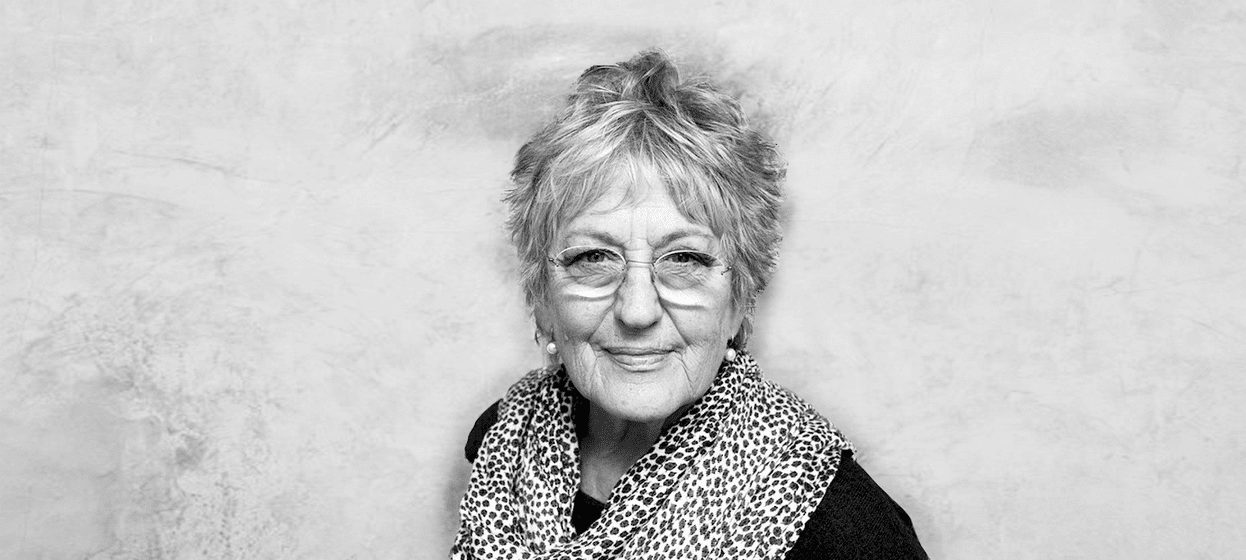
Big Thinker: Germaine Greer
Big thinkerPolitics + Human RightsRelationships
BY The Ethics Centre Kym Middleton Aisyah Shah Idil 20 AUG 2018
Feminist firebrand or second wave scourge? When The Female Eunuch was published to international success, it was obvious Germaine Greer (1939—present) had hit a nerve – something she continues to do.
This article contains language and content that may be offensive to some readers.
Germaine Greer is an Australian writer and public intellectual who rose to international influence with her book published in 1970, The Female Eunuch. It was a watershed text in second wave feminism, a bestseller around the world, and it made Greer a household name.
Greer’s infamously bold voice and sense of humour permeates throughout the book. Her strong character and take no prisoners approach to public debate saw her regularly contribute to panels and broadcast media. Greer was launched into the public eye as a young, bolshie feminist star.
Since then, Greer has written many books spanning literature, feminism and the environment. She has become one of Australia’s most ‘no-platformed’ thinkers. Almost five decades on, we take a look at her contributions to feminist philosophy.
Human freedom is intrinsically tied to sexual freedom
Greer is a liberation, rather than equality feminist. She believed achieving true freedom for women meant asserting their uniquely female difference and “insisting on it as a condition of self-definition and self-determination”.
Greer wanted to be certain about this female difference, and for her, this certainty started with the body.
You can think of Greer’s claims like this:
- Women are sexually repressed.
- Men are not sexually repressed.
- The difference between men and women is their biological sex.
- Biological sex determines if you’re sexually repressed or not.
The second part of her argument is as follows:
- Women are expected to be ‘feminine’.
- Women are sexually repressed.
- The expectation to be ‘feminine’ is sexually repressive.
Greer is scathing in her portrayal of ‘femininity’. She claimed it kept women docile, repressed, and weak. It stifled women’s sexual agency, hence the ‘eunuch’, which was intrinsically tied to their humanity.
Only by liberating women sexually could they remove this imposed submissiveness and embrace the freedom to live the way they wanted.
“The freedom I pleaded for twenty years ago was freedom to be a person, with dignity, integrity, nobility, passion, pride that constitute personhood. Freedom to run, shout, talk loudly and sit with your knees apart.” – Germaine Greer (1993)
A feminist utopia is an anarchist utopia first
In the London Review of Books 1999, Linda Colley wrote, “Properly and historically understood, Greer is not primarily a feminist. More than anything else, she should be viewed as a utopian.”
For Greer, the greatest danger of the widespread female eunuch is not an unfulfilling sex life. It is in her being so concerned with femininity that she is incapable of political action. Greer believed this social conditioning was dire and its enforcers so embedded that revolution rather than reform was required.
Greer called for this revolution to start in the home. She spoke openly about topics that at the time were taboo: menstruation, hormonal changes, pregnancy, menopause, sexual arousal and orgasm. She decried the agents of femininity that she felt kept women trapped: makeup, constricting clothing, feminine hygiene products, stifling marriages, misogynistic literature and female sexual competitiveness. She reserved her greatest fury for widespread consumerism, which she believed kept women dependent on the systems that forged their own oppression.
Like Mary Wollstonecraft before her, Greer argued neither men nor women benefited from this. She called upon women to rebel again these “dogmatists” and create a world of their own. But the solution she presents is exploratory instead of pragmatic. Perhaps women could live and raise their children together, making their own goods and growing their own food. It would be somewhere pleasant like the rolling landscapes of Italy, with local people to tend house and garden. (It’s unclear whether these local people would be liberated too.)
Intellectual criticisms
Greer’s celebration of non-monogamous sex in The Female Eunuch and her derision of Western society’s obsession with sex in Sex and Destiny led critics to label her ideas slipshod and too inconsistent for a public intellectual.
The root of most criticisms and controversies surrounding Greer, tend to stem from her view of the sexes. Like other second wave feminists, she suggested biological sex determined women’s oppression. This stands in stark contrast to the perspectives of third wave feminists and queer theorists, such as Judith Butler, for whom gender’s learned behaviours play the crucial role.
Greer and her contemporaries are often criticised by third and fourth wave feminists for predicating their philosophies on a male/female binary. A binary that does not account for the broad chromosomal spectrums found among intersex people or the many ways in which individuals feel and express their gender.
Infamous commentary
Greer is not the docile feminine woman she warned of in The Female Eunuch. She has long been celebrated for bucking trends and being refreshingly bold and frank. She is also heavily criticised for being rude, offensive and out of touch. She has been described as having “the self-awareness of a sweet potato”, a “misogynist”, and “a clever fool”.
After she extolled the work of Australia’s first female Prime Minister Julia Gillard on an episode of ABC’s Q&A, she was slammed for criticising Gillard’s body and clothing:
“What I want her to do is get rid of those bloody jackets … They don’t fit. Every time she turns around you’ve got that strange horizontal crease which means they cut too narrow in the hips. You’ve got a big arse Julia…”
Social media lit up with calls for Greer to “shut up” after she linked rape and bad sex in the age of #MeToo:
“Instead of thinking of rape as a spectacularly violent crime – and some rapes are – think about it as non-consensual, that is, bad sex. Sex where there is no communication, no tenderness, no mention of love. We used to talk about lovemaking.”
It is probably Greer’s public statements around transgender women that have attracted the most protest. In an interview after an intense no-platforming campaign to cancel a lecture Greer was scheduled to give at Cardiff University on women and power in the 20th century, she said, “Just because you lop off your penis and then wear a dress doesn’t make you a fucking woman”.
This sentiment probably links with Greer’s ideas on sexed bodies. A sympathetic reading of the comment might see it as one about being born into oppression – a rather second wave feminist sentiment that echoes the racial and queer politics of the same era. An idea that’s sometimes cited as analogous to Greer’s controversial comment is that you cannot understand what it is to be black, unless you were born black and experienced discriminations since the day of your birth. Perhaps she was suggesting we cannot understand the oppression experienced by women and girls unless we are born into a female body. Perhaps not. Either way, the comment was received as incredibly offensive and naive to transgender women’s experiences.
“People are hurtful to me all the time. Try being an old woman. I mean for goodness sake! People get hurt all the time. I’m not about to walk on eggshells.” – Germaine Greer, 2015
Greer and second wave feminists generally are at odds with intersectional feminism which is prominent today. Intersectional feminism holds that many factors beyond sex marginalise people – age, race, nationality, disability, class, faith, sexual orientation, gender identity… Different women will be oppressed to varying degrees.
Whether Greer is a trailblazer or tactless provocateur, it is doubtless her ideas have influenced the political and personal and landscapes of gender relations and feminist thinking.
Ethics in your inbox.
Get the latest inspiration, intelligence, events & more.
By signing up you agree to our privacy policy
You might be interested in…
Opinion + Analysis
Relationships
How to help your kid flex their ethical muscle
Opinion + Analysis
Climate + Environment, Relationships, Science + Technology
From NEG to Finkel and the Paris Accord – what’s what in the energy debate
Opinion + Analysis
Relationships, Society + Culture
Meet Josh, our new Fellow asking the practical philosophical questions
Opinion + Analysis
Politics + Human Rights, Relationships
What’s the use in trying?
BY The Ethics Centre
The Ethics Centre is a not-for-profit organisation developing innovative programs, services and experiences, designed to bring ethics to the centre of professional and personal life.
BY Kym Middleton
Former Head of Editorial & Events at TEC, Kym Middleton is a freelance writer, artistic producer, and multi award winning journalist with a background in long form TV, breaking news and digital documentary. Twitter @kymmidd
BY Aisyah Shah Idil
Aisyah Shah Idil is a writer with a background in experimental poetry. After completing an undergraduate degree in cultural studies, she travelled overseas to study human rights and theology. A former producer at The Ethics Centre, Aisyah is currently a digital content producer with the LMA.
Ethics Explainer: Authenticity

Is the universe friendly? Is it fundamentally good? Peaceful? Created with a purpose in mind?
Or is it distant and impersonal? Indifferent to what you want? A never ending meaningless space? We all have ideas of how the world truly is. Maybe that’s been influenced by your religion, your school, your government, or even the video games you played as a kid.
Whatever the case is, how we think about ourselves and what we consider a life well spent, has a lot to do with the relationship we have with the world. And that brings us to this month’s Ethics Explainer.
Authenticity
To behave authentically means to behave in a way that responds to the world as it truly is, and not how we’d like it to be. What does this mean?
Well, this question takes us to two different schools of thought in philosophy, with two very different ideas of the nature of the world we live in. The first one is essentialism. Now, essentialism is a belief that find its roots in Ancient Greece, and in the writings of Socrates and Plato.
They took it as a given that everything that exists has its own essence. That is, a certain set of core properties that are necessary, or essential, for it to be what it is. Take a knife. It doesn’t matter if it has a wooden handle or a metal one. But once you take the blade away, it becomes not-a-knife. The blade is its essential property because it gives the knife its defining function.
Plato and Aristotle believed that people had essences as well, and that these existed before they did. This essence, or telos, was only acquired and expressed properly through virtuous action, a process that formed the ideal human. According to the Greeks, to be authentic was to live according to your essence. And you did that by living ethically in the choices you make and the character you express.
By developing intellectual virtues like curiosity or critical thinking, and character virtues like courage, wisdom, and patience, it’d get easier to tell what you should or shouldn’t do. This was the standard view of the world until the early 19th century, and is still the case for many people today.
The rise of existentialism
But some thinkers began to wonder, what if that wasn’t true? What if the universe has no inherent purpose? What if we don’t have one either? What if we exist first, then create our own purpose?
This belief was called existentialism. Existentialists believe that neither us nor the universe has an actual, predetermined purpose. We need to create it for ourselves. Because of this, nothing we do or are is actually inherently meaningful. We were free to do whatever we wanted – a fate Jean Paul-Sartre, French existential philosopher, found quite awful.
Being authentic meant facing the full weight of this shocking freedom, and staying strong. To simply follow what your religious leader, parent, school, or boss told you to do would be to act in “bad faith”. It’s like burying your head in the sand and pretending that something out there has meaning. Meaning that doesn’t exist.
By accepting that any meaning in life has to be given by you, and that ‘right’ and ‘wrong’ are just a matter of perspective, your choices become all you have. And ensuring that they are chosen by the values you accept to live by, instead of any predetermined ones etched in stone, makes them authentic.
This extends beyond the individual. If the world is going to have any of the things most of us value, like justice and order, we’re going to have to put it there ourselves.
Otherwise, they won’t exist.
Ethics in your inbox.
Get the latest inspiration, intelligence, events & more.
By signing up you agree to our privacy policy
You might be interested in…
Opinion + Analysis
Relationships
Why learning to be a good friend matters
Opinion + Analysis
Relationships, Science + Technology, Society + Culture
5 things we learnt from The Festival of Dangerous Ideas 2022
Big thinker
Relationships
Big Thinker: René Descartes
Explainer
Politics + Human Rights, Relationships
Ethics Explainer: Autonomy
BY The Ethics Centre
The Ethics Centre is a not-for-profit organisation developing innovative programs, services and experiences, designed to bring ethics to the centre of professional and personal life.
How to break up with a friend

How to break up with a friend
Opinion + AnalysisHealth + WellbeingRelationships
BY Aisyah Shah Idil The Ethics Centre 16 AUG 2018
If your friendship is a battlefield, you’ve got to know when to wave the white flag. How do you break up with a friend – ethically?
It might’ve been a slow fade after leaving high school. A messy split over unpaid bills. Maybe it was an awkward part at the airport, or a text silence that lasted a few months longer than usual.
Though not as lamented as ending a romance, ending a friendship can be just as painful. Maybe even more. While some of that is because of the hurt and disappointment of any unfulfilling relationship, another part can be attributed to its ambiguity.
The due process owed to an ex (counselling, teary conversations, logical explanations to well-meaning buddies and family) doesn’t exist for the friendships in our lives. If we want to break up with a friend, how do we do it ethically?
If you’re keen to rip off the friendship band-aid, keep reading. Here are some questions our Ethi-call counsellors would ask to help you act in line with your morals and values.
1. What is the purpose of friendship?
Let’s get back to basics. Asking yourself what a good friendship looks like can help you see if there’s a disconnect between what you’d like it to be and what it really is.
A good friendship could be one where you:
- Love and accept each other
- Are role models for each other’s children
- Feel safe expressing your honest thoughts
- Feel grateful that you share each other’s lives
If any of these questions cause discomfort, maybe your friendship has crossed a line it shouldn’t have. What is your duty to yourself? Is it fair to expect these things?
2. How could you create the least harm and most benefit?
Owning that your needs aren’t being met is important. But equally as important are the needs your friend is owed in a reciprocal relationship.
- What are your obligations to your friend?
- Have you any part to play in this?
- What would a wise person suggest?
Every relationship takes effort. Part of loving someone, warts and all, is acknowledging the effort is worth it. But when that isn’t true, a breakup may not be the only way to deal with it. Consider if your actions are going to cause more benefit than harm – to all the people involved.
- What are the consequences (of a friendship breakup)?
- Is doing nothing an option? If so, what would be your tipping point?
- What will the lasting impact be?
A breakup isn’t the end of anyone’s story. People carry these formative experiences with them and may do so for the rest of their lives.
3. How can you preserve and prioritise dignity?
If you’ve considered all this and still think you need to end the friendship, remember to be kind. Considering why you were friends in the first place means this transition isn’t about kicking anyone when they’re down.
How will you break up? Does your friendship lend itself to a face-to-face conversation or is it better through email? Is one session or message enough or are more required?
Your friend might not agree with what you consider to be good and right, but handling such a delicate situation in a way that is in line with your moral character might be one of your greatest accomplishments.
Some positive outcomes might even eventuate, such as:
- Renewal of your friendship and commitment to each other
- Knowing that you both did your best
- Revelation in self-knowledge and commitment to personal growth
- Speaking well of each other to mutual friends (and meaning it)
- Shared sense of closure and grief
Friendships and relationships don’t exist in vacuums. Whether good or bad, a history of contact with each other comes with its own particular language, traditions and memories. None of us are the centre of the universe, and believing so runs counter to the reality of multiple subjective experiences. Continuing on that path can not only make it harder for you to be a friend, but for you to be fully human.
Even if it wasn’t love, you shared each other’s lives. And that’s always worth respecting.
If you or someone you know is at risk of harm or feeling suicidal, get help immediately. Call Lifeline 13 11 14 or 000 if life is in danger.
Ethics in your inbox.
Get the latest inspiration, intelligence, events & more.
By signing up you agree to our privacy policy
You might be interested in…
Opinion + Analysis
Relationships, Science + Technology
To fix the problem of deepfakes we must treat the cause, not the symptoms
Opinion + Analysis
Relationships, Society + Culture
Five dangerous ideas to ponder over the break
Opinion + Analysis
Relationships
In two minds: Why we need to embrace the good and bad in everything
Opinion + Analysis
Relationships
Agree to disagree: 7 lessons on the ethics of disagreement
BY Aisyah Shah Idil
Aisyah Shah Idil is a writer with a background in experimental poetry. After completing an undergraduate degree in cultural studies, she travelled overseas to study human rights and theology. A former producer at The Ethics Centre, Aisyah is currently a digital content producer with the LMA.
BY The Ethics Centre
The Ethics Centre is a not-for-profit organisation developing innovative programs, services and experiences, designed to bring ethics to the centre of professional and personal life.
Why your new year's resolution needs military ethics

Why your new year’s resolution needs military ethics
Opinion + AnalysisHealth + WellbeingRelationships
BY The Ethics Centre 13 AUG 2018
Weight loss goals and the laws of armed conflict seem pretty far removed. But stick with us! Military ethics provide useful principles to test the worth of our new year’s resolutions.
The ethics of war are based on making sure the inevitable harm, pain and suffering caused by violence is minimised as much as possible. Most resolutions also involve some pain and suffering. After all, we don’t need resolve to do what’s easy! So let’s apply these principles of warfare to the hardships of our resolutions and check if they’re are morally justified.
Just war theory, the most common approach to the ethics of war, says war is justified only if it satisfies a set of conditions. These include:
Just cause
War is only just when it is fought in response to a serious violation of state or human rights (basically, because war causes death and destruction it has to be responding to a grievous offence).
Right intention
The declaration of war is not motivated by private, self-interested or vicious intentions but out of a desire to bring about a just outcome.
Legitimate authority
Only the leader or leaders of a political community have the right to declare war.
(Macro) proportionality
The peace the war aims to create has to be preferable to the way the world would be if no war was fought (a nuclear war will almost always be disproportionate).
Last resort
Are there less harmful measures than war which might bring about peace?
Probability of success
Do not undertake the pain and suffering of war if there is no chance of winning, otherwise lives are wasted in vain.
(Micro) proportionality
The benefits gained from a military operation must outweigh the harms it inflicts.
Discrimination
Only combatants may be targeted by military attacks. Civilians are off limits.
Good goal
An ethical resolution will aim to achieve something good (health, travel, education). Don’t aim to do something you know to be bad (“This year I resolve to make profits at any cost”).
Right intention
Is your resolution motivated by a genuine desire for self-improvement? Or is it motivated by shame, peer pressure, greed, vanity or fear? If the latter is true, it might be worth considering whether it’s really a resolution worth making.
Is your resolution motivated by a genuine desire for self-improvement? Or is it motivated by shame, peer pressure, greed, vanity or fear?
Accept your limits
You only have the ‘authority’ to make resolutions for things within your control. Don’t resolve to get a promotion at work. Instead, resolve to reinvigorate your attitude at work so your application for promotion has the best chance of success. But remember, getting the promotion is outside your control.
Holistic improvement
Make sure you will be a better person overall after succeeding in your resolution. You might be able to run a marathon, but make sure it isn’t so detrimental to your health, relationships, work or other interests that you’re worse-off overall.
Avoid drastic measures
Have you tried less intense measures to achieve your goals? Maybe before you sign up for a 10 day silent yoga retreat you could try signing up for a weekly class and see if it helps.
Probability of success
Set realistic goals you can actually achieve. If you and your partner aim to spend more time together after three date nights in the last year, resolving to have a weekend away once a fortnight might be a bit extreme. Be honest to avoid setting yourself up for failure and making the effort and sacrifices you make futile.
Cost/benefit analysis
Is the inconvenience, expense or pain of your resolution worth it for the goal you are trying to achieve? Trying to have a body like Chris Hemsworth might be more trouble than it’s worth.
Own your resolution
Your resolution is your resolution – everyone except you is an innocent bystander! If you’ve decided to go vegetarian, that’s fine. Insisting everyone in your share house skips on meat to suit your new diet isn’t.
So there you have it – your guide to an ethical new year’s resolution with help from military ethics. These steps won’t guarantee your resolution is successful but they will guarantee it’s a resolution worth making. For tips on how to form the resolve, perseverance and courage it takes to stick to your new commitment, you might want to talk to a soldier.
Ethics in your inbox.
Get the latest inspiration, intelligence, events & more.
By signing up you agree to our privacy policy
You might be interested in…
Opinion + Analysis
Health + Wellbeing, Relationships
Male suicide is a global health issue in need of understanding
Opinion + Analysis
Health + Wellbeing, Business + Leadership
Service for sale: Why privatising public services doesn’t work
Opinion + Analysis
Health + Wellbeing
Maggie Beer: Good food can drive better aged care
Opinion + Analysis
Relationships, Science + Technology
The ethics of exploration: We cannot discover what we cannot see
BY The Ethics Centre
The Ethics Centre is a not-for-profit organisation developing innovative programs, services and experiences, designed to bring ethics to the centre of professional and personal life.
Free markets must beware creeping breakdown in legitimacy

Free markets must beware creeping breakdown in legitimacy
Opinion + AnalysisPolitics + Human RightsRelationships
BY Simon Longstaff 2 AUG 2018
This article was written for, and first published on the Australian Financial Review.
This much we know: a blistering series of scandals has led to a profound loss of trust – not just in Australia but across the developed world. Consequently, the issue of trust has become a hot topic – a new staple item on meeting agendas of cabinets, boards, conferences, etc.
However, what if the spotlight being shone on the topic of trust is blinding us so that we fail to see a far greater risk lurking in the shadows – the potential loss of legitimacy?
Creating Transparency
The Ethics Centre has just published a paper that raises this possibility and sounds a warning that should be heeded by those of us who believe in the virtues of the market economy. We do not argue that trust is unimportant. Instead, we make the case that while individuals and institutions can (and do) survive a loss of trust, they rarely (if ever) survive a loss of legitimacy.
“We do not argue that trust is unimportant. Instead, we make the case that while individuals and institutions can (and do) survive a loss of trust, they rarely (if ever) survive a loss of legitimacy.”
At the core of our argument is a simple truth of economics. A reduction in trust can be compensated for by an increase in the “deadweight” costs of surveillance and enforcement. The classic case is the making of agreements. A high trust context can see agreements made on the basis of a low-cost handshake (or its equivalent). Low trust contexts are burdened with the high costs of detailed contracts, enforcement provisions, litigation, etc.
The Definition
Bearing this in mind, we distinguish between the concepts of trust and legitimacy according to the following definitions:
Legitimacy is a recognised and well-founded right to claim a certain status, role or function.
Trust is a belief that a person or institution will perform their role or function in accordance with its obligations or where not bound by duty, in a predictable manner – often in accordance with its interests.
The less formal distinction is as follows: where low trust can be compensated for by a higher degree of checks and balances (deadweight costs), a loss of legitimacy cannot be compensated for at any cost.
Making The Case
Now, if you accept our argument that there is a difference between trust and legitimacy and that a loss of the latter is usually fatal, it soon becomes clear that some of our institutions are at grave risk. We see the early signs in a number of areas. In politics, it is not only political parties and politicians that risk losing legitimacy – it is the system of representative liberal democracy that is being called into question.
As the Lowy Institute has reported, a growing number of younger Australians doubt the capacity of democracy to respond to the challenges of modern life. In economics, there is growing scepticism about the legitimacy of an international economic order. Especially when the focus shifts to free trade and the operation of free markets. We see both trends converging in movements (sometimes dismissed and derided as mere populism) that are reshaping the political and economic landscapes in Europe, North America, Central America and at home.
The great risk in this is that each and every part of the political and economic ecosystem becomes tarred by the same brush – with the spiral of decline sucking in all…the good, the bad and the indifferent…without distinction.
Our Role
For its part, The Ethics Centre has a long history of calling attention to the ethical underpinnings of the free market…recalling that Adam Smith championed markets as the means by which to bring prosperity to all (and not just a few). We (again) make the case for free markets in this latest paper – but go one step further by outlining some core principles that we think should be adopted by corporations if they are to help maintain the legitimacy of the system upon which they ultimately depend.
At one level, the headline principles are deceptively simple: respect people, do no harm, be responsible and be transparent and honest. However, rather than simply state self-evident pieties, we have tied these principles back to the underlying concept of free markets as tools for increasing the stock of common good. These tools and mechanisms can only function, as intended, if participants do not lie, cheat or use their power oppressively.
“Businesses are struggling to develop enabling connections with communities. Their efforts are embedded in conversations about trust, social licence, shared value and so on.”
Businesses are struggling to develop enabling connections with communities. Their efforts are embedded in conversations about trust, social licence, shared value and so on. There are major programs to increase transparency – often as an alternative to trust (which makes transparency unnecessary). We argue that the problem with all of these efforts is that they fail to address the larger problem of a system whose parts are progressively undermining the legitimacy of the whole.
The good news is that the unravelling is reversible and that some fairly straightforward measures can be applied, but only if we rediscover the purpose of the free market and the economic actors that it sustains – for the good of all.
Visit https://ethics.org.au/trust-and-legitimacy/ to download a copy of the Trust, Legitimacy and the Ethical Foundations of the Market Economy report.
Ethics in your inbox.
Get the latest inspiration, intelligence, events & more.
By signing up you agree to our privacy policy
You might be interested in…
Opinion + Analysis
Health + Wellbeing, Relationships
Anthem outrage reveals Australia’s spiritual shortcomings
Reports
Politics + Human Rights
Ethical by Design: Evaluating Outcomes
Opinion + Analysis
Politics + Human Rights, Relationships, Society + Culture
Film Review: If Beale Street Could Talk
Opinion + Analysis
Society + Culture, Relationships
Do we exaggerate the difference age makes?
BY Simon Longstaff
Simon Longstaff began his working life on Groote Eylandt in the Northern Territory of Australia. He is proud of his kinship ties to the Anindilyakwa people. After a period studying law in Sydney and teaching in Tasmania, he pursued postgraduate studies as a Member of Magdalene College, Cambridge. In 1991, Simon commenced his work as the first Executive Director of The Ethics Centre. In 2013, he was made an officer of the Order of Australia (AO) for “distinguished service to the community through the promotion of ethical standards in governance and business, to improving corporate responsibility, and to philosophy.” Simon is an Adjunct Professor of the Australian Graduate School of Management at UNSW, a Fellow of CPA Australia, the Royal Society of NSW and the Australian Risk Policy Institute.
How to help your kid flex their ethical muscle

How to help your kid flex their ethical muscle
Opinion + AnalysisRelationships
BY Victoria Whitaker The Ethics Centre 24 JUL 2018
Kids can be cruel. When they are arbitrarily mean to their own friends, ethical reflection can help. Victoria Whitaker talks us through building your child’s ethical muscle in testing times.
My daughter came home to me in tears last night. She shuddered, eyes wet, and a waterfall connected her nose to her mouth as she explained to me that her best friend had decided she didn’t like her anymore and she was no longer allowed to play in their small group of friends.
“Mummy, I am so sad. Who am I going to play with? Why doesn’t she like me?”
It’s cruelty at its peak. Of course, there is no reason. It’s a power play that seems to happen far too early.
“I know”, she said. “Can I invite her over to play? Then she will like me again”.
What do I do? Maybe having her over will help. But who wants friends like that?
I want my daughter to know her worth. I wanted her to consider this dilemma through the different ethical lenses. We talked.
I asked her to think about the consequences of having who she considered her best friend over. Yes, you might reconnect. But she might also find out how to push you around. And is this how you want your friends to treat you? Will you let all your friends do this? These questions relate to consequentialism, a mode of ethical thought that considers outcomes and consequences.
I also asked her what rights she had in this friendship. What things could she expect in friendship? And what duties do we have to our friends – in all friendships, not just this one? These questions relate to deontology, an ethical theory that prioritises our promises, as well as codes and rules over considering outcomes.
I asked her about the types of relationships she wants. Which relationships were most important to her and why? These questions relate to an ethics of care.
I asked her what sort of friend she would like to be. She told me she liked to have fun, to explore and play together, and valued being kind and caring. This question relates to virtue ethics, a type of thinking that values character and the type of person we aspire to be.
I asked her about the purpose of friendship and why it existed. What things were important about friendship to her? These questions relate to teleology, an ethical theory that considers the purpose of things.
And then we discussed in reflection of all these questions, if her friend was actually the friend she wanted. We talked about whether this little girl had the qualities she wanted from friendship. And we talked about her other friends and which ones did have those qualities she wanted. We also discussed what type of friend my daughter wanted to be… what sort of person she wanted to be. You don’t need a degree in ethics to have to have these conversations with your kids. We are all more expert in this stuff than we give ourselves credit for – our children too.
Ethics isn’t just thinking and talking. It requires action. My daughter and I discussed what steps she could take next. She was still keen to be friends, but her view of the friendship had changed. Her view of herself had changed too. And as such the friendship would change – and we discussed how that was okay.
This morning as we packed her bag and got her ready for the walk to school, the world didn’t seem as heavy as it was last night. And she seemed to carry herself just a little bit taller.
Ethics in your inbox.
Get the latest inspiration, intelligence, events & more.
By signing up you agree to our privacy policy
You might be interested in…
Explainer
Relationships
Ethics Explainer: Hope
Opinion + Analysis
Relationships
Praying for Paris doesn’t make you racist
Big thinker
Relationships
Big Thinker: Steven Pinker
Opinion + Analysis
Business + Leadership, Relationships
Moving work online
BY Victoria Whitaker
Victoria has oversight of strategy, operations and business development for The Ethics Centre’s consulting and education services. She joined The Ethics Centre in 2010 and has a background in corporate responsibility and sustainability, working in Australia and the UK in the areas of strategy, governance, policy, research, education, monitoring and reporting.
BY The Ethics Centre
The Ethics Centre is a not-for-profit organisation developing innovative programs, services and experiences, designed to bring ethics to the centre of professional and personal life.
Calling out for justice
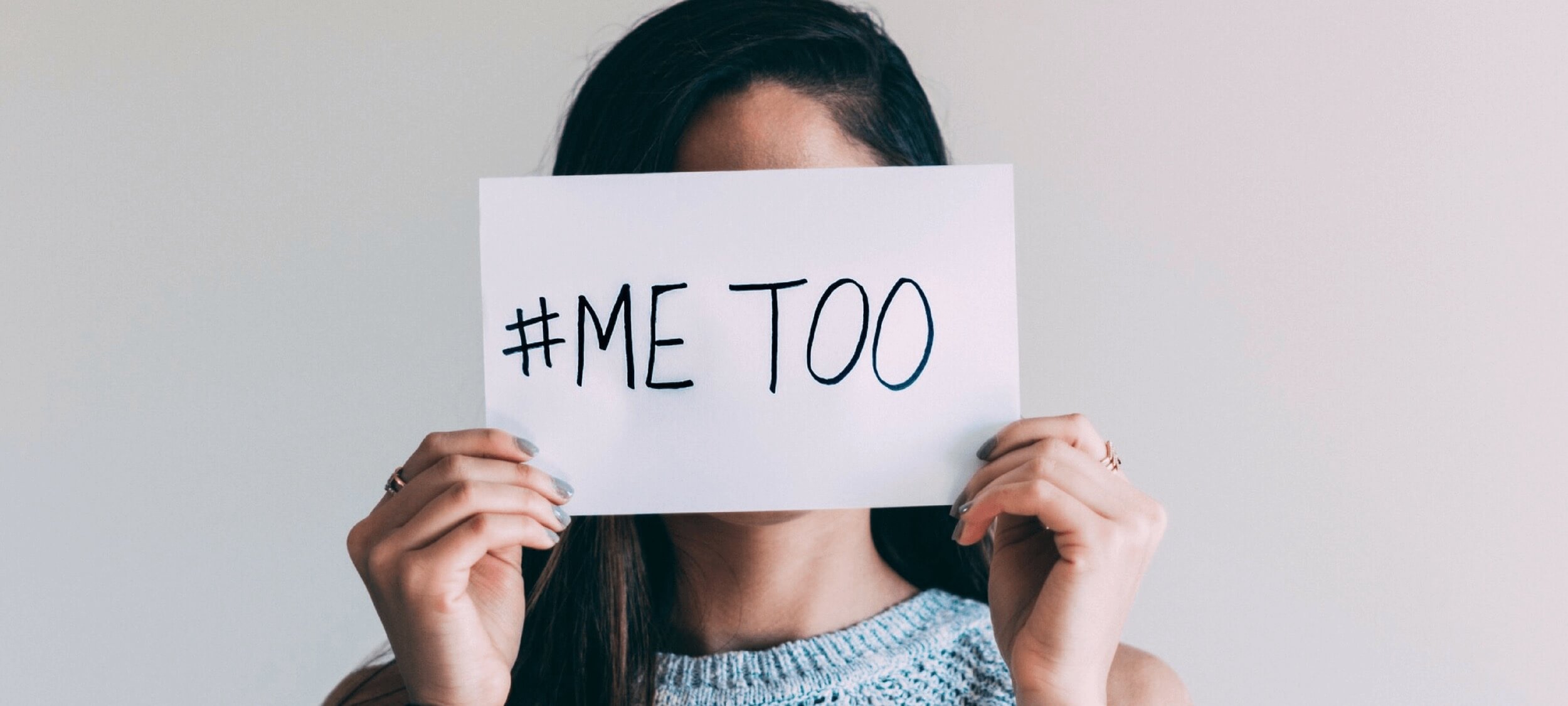
Calling out for justice
Opinion + AnalysisPolitics + Human RightsRelationships
BY Oscar Schwartz The Ethics Centre 19 JUL 2018
It’s probably the biggest phenomenon of calling out we’ve ever seen. On 15 October last year, in the wake of Harvey Weinstein being accused of sexual harassment and rape, actress Alyssa Milano tweeted:
“If all the women who have been sexually harassed or assaulted wrote ‘Me too.’ as a status, we might give people a sense of the magnitude of the problem.”
The phrase and hashtag ‘Me too’ powerfully resonated with women across the globe and became one of the most viral occurrences in social media history. Not only did the campaign become a vehicle for women to share their stories of sexual abuse and harassment, it had real world consequences, leading to the firing and public humiliation of many prominent men.
One of the fall outs of the #MeToo movement has been a debate about “call out culture”, a phrase that refers to the practice of condemning sexist, racist, or otherwise problematic behaviour, particularly online.
While calling out has been praised by some as a mechanism to achieve social justice when traditional institutions fail to deliver it, others have criticised call outs as a form of digital mob rule, often meting out disproportionate and unregulated punishment.
Institutional justice or social justice
The debate around call out culture raises a question that goes to the core of how we think justice should be achieved. Is pursuing justice the role of institutions or is it the responsibility of individuals?
The notion that justice should be administered through institutions of power, particularly legal institutions, is an ancient one. In the Institutes of Justinian, a codification of Roman Law from the sixth century AD, justice was defined as the impartial and consistent application of the rule of law by the judiciary.
A modern articulation of institutional justice comes from John Rawls, who in his 1971 treatise, A Theory of Justice, argues that for justice to be achieved within a large group of people like a nation state, there has to be well founded political, legal and economic institutions, and a collective agreement to cooperate within the limitations of those institutions.
Slightly diverging from this conception of institutional justice is the concept of social justice, which upholds equality – or the equitable distribution of power and privilege to all people – as a necessary pre-condition.
Institutional and social justice come into conflict when institutions do not uphold the ideal of equality. For instance, under the Institutes of Justinian, legal recourse was only available to male citizens of Rome, leaving out women, children, and slaves. Proponents of social justice would hold that these edicts, although bolstered by strong institutions, were inherently unjust, built on a platform of inequality.
Although, as Rawls argues, in an ideal society institutions of justice help ensure equality among its members, in reality social justice often comes into conflict with institutional power. This means that social justice has to sometimes be pursued by individuals outside of, or even directly in opposition to, institutions like the criminal justice system.
For this reason, social justice causes have often been associated with activism. Dr Martin Luther King Jr’s march in Montgomery, Alabama to protest unfair treatment of African American people in the courts was an example of a group of individuals calling out an unjust system, demanding justice when institutional avenues had failed them.
Calling out
The tension between institutional and social justice has been highlighted in debates about “call out culture”.
For many, calling out offends the principles of institutional justice as it aims to achieve justice at a direct and individual level without systematic regulation and procedure. As such, some have compared calling out campaigns like #MeToo to a type of “mob justice”. Giles Coren, a columnist for The Times of London, argues the accusations of harassment should be handled only by the criminal justice system and that “Without any cross-examination of the stories, the man is finished. No trials or second chances.”
But others see calling out sexist and racist behaviour online as a powerful instrument of social justice activism, giving disempowered individuals the capacity to be heard when institutions of power are otherwise deaf to their complaints. As Olivia Goldhill wrote in relation to #MeToo for Quartz:
“Where inept courts and HR departments have failed, a new tactic has succeeded: women talking publicly about harassment on social media, fuelling the public condemnation that’s forced men from their jobs and destroyed their reputations.”
Hearing voices
In his 2009 book, The Idea of Justice, economist Amartya Sen argues a just society is judged not just by the institutions that formally exist within it, but by the “extent to which different voices from diverse sections of the people can actually be heard”.
Activist movements like #MeToo use calling out as a mechanism for wronged individuals to be heard. Writer Shaun Scott argues that beyond the #MeToo movement, calling out has become an avenue for minority groups to speak out against centuries of oppression, adding the backlash against “call out” culture is a mechanism to stop social change in its tracks. “Oppressed groups once lived with the destruction of keeping quiet”, he writes. “We’ve decided that the collateral damage of speaking up – and calling out – is more than worth it.”
While there may be instances of collateral damage, even people innocently accused, a more pressing problem to address is how and why institutions we are supposed to trust are deaf to many of the problems facing women and minority groups.
Dr Oscar Schwartz is an Australian writer and researcher based in New York with expertise in tech, philosophy, and literature. Follow him on Twitter: @scarschwartz
Ethics in your inbox.
Get the latest inspiration, intelligence, events & more.
By signing up you agree to our privacy policy
You might be interested in…
Opinion + Analysis
Relationships
Now is the time to talk about the Voice
Opinion + Analysis
Politics + Human Rights
How far should you go for what you believe in?
Opinion + Analysis
Politics + Human Rights
Did Australia’s lockdown leave certain parts of the population vulnerable?
Opinion + Analysis
Relationships, Society + Culture
The self and the other: Squid Game’s ultimate choice
BY Oscar Schwartz
Oscar Schwartz is a freelance writer and researcher based in New York. He is interested in how technology interacts with identity formation. Previously, he was a doctoral researcher at Monash University, where he earned a PhD for a thesis about the history of machines that write literature.
BY The Ethics Centre
The Ethics Centre is a not-for-profit organisation developing innovative programs, services and experiences, designed to bring ethics to the centre of professional and personal life.
Big Thinker: Shulamith Firestone

Big Thinker: Shulamith Firestone
Big thinkerHealth + WellbeingRelationships
BY The Ethics Centre 18 JUL 2018
Women’s oppression comes down to biological differences – so get rid of them. If you can put a man on the moon, you make a mechanical womb and gestate a baby without a woman.
These were the arguments of Shulamith Firestone (1945—2012), writer, artist and feminist, whose book, The Dialectic of Sex, argued the structure of the biological family was primarily to blame for the oppression of women.
With a radical and uncompromising vision, she advocated for the development of reproductive technologies that would free women from the responsibilities of childrearing, dismantle the hierarchy of family life, and set the foundations for a truly egalitarian society.
The girlhood of a radical thinker
Firestone was born to an Orthodox Jewish family in Ottawa, Canada in 1945. Her mother was a Holocaust survivor that came from a lineage of rabbis and scholars, and her father was a travelling salesmen.
Firestone possessed a fierce intelligence and strong will from a young age and regularly came into conflict with the stringent gender norms that her religious father imposed. When she questioned why she had to make her brother’s bed in the morning, her father replied, “because you’re a girl.”
In the late 1960s, Firestone left home to study art in Chicago and then New York, where she joined left wing political movements and came of age intellectually. While she was free from her father’ tyranny, she saw the same sexism that had controlled her life at home across all areas of society. It was a time when women held almost no major elected positions, abortion was illegal, rape a stigma to be borne alone, and home making seen as a woman’s highest calling.
As a response to this, Firestone began studying history and feminist literature, hoping to understand the root cause of women’s oppression, which resulted in the publication of The Dialectic of Sex in 1970.
The Dialectic of Sex
While other feminist writers and philosophers proposed that the cause of women’s oppression was, at root, political and cultural, Firestone made a radical departure, positing that the inequality between men and women stemmed from fundamental biological differences – most notably that women had to carry, give birth to, and nurse babies.
This biological reality, Firestone argued, created an “unequal power distribution” within families. Because women were responsible for a child’s care, they became dependant on men to provide for them while they were unable to leave the home. This in turn gave rise to a hierarchy within the family in which babies were dependant on mothers, mothers on their husbands, and husbands on no one.
Firestone argued that over the course of human history, society itself had come to mirror the structure of the biological family and was the source from which all other inequalities developed.
Women were expected to stay at home and care for children, which held them back from becoming financially independent and achieving political agency.
If the feminist movement was to overcome male domination, it had to reckon with the fundamental biological reality that underpinned it.
“The end goal of feminist revolution must be… not just the elimination of male privilege, but of the sex distinction itself.”
While questioning the fundamental biological conditions was not conceivable in previous centuries, Firestone said the great advancements that had accrued in science and technology in the 20th century made it possible to imagine a future in which the reproductive role of women was outsourced to “cybernetic machines”. She believed if the same energy and resources were put into developing reproductive technologies as had been put into other projects, like sending a human to the moon, then it could be achieved in decades.
What held this research back, Firestone suggested, was institutional resistance from men in positions of power who did not want to disrupt the existing hierarchy.
“The problem becomes political … when one realises that, though man is increasingly capable of freeing himself from the biological conditions that created his tyranny over women and children, he has little reason to want to give this tyranny up.”
The true feminist cause, then, was to demand reproductive technology that could free women from what had previously been a biological destiny. Firestone believed if this was achieved, and reproduction was no longer the sole responsibility of women and their bodies, the family would undergo a radical restructuring, a flattening of the patriarchal hierarchy, which would then be mirrored in a more egalitarian society itself.
Brilliant and preposterous
The Dialectic of Sex caused a stir from the moment it was published. It was hard for critics to deny Firestone’s prodigious intellect, but they wrote off her ideas as too radical, too utopian, and too ridiculous to warrant serious engagement. Her theory of gender inequality was called “brilliant” and “preposterous” in the same review by one New York Times critic.
The book’s publication caused a greater rift between Firestone and her family, and her staunch line on biological inequality alienated her from some feminist groups. By the 1980s, when the backlash against radical feminism had taken hold of mainstream American culture, Firestone retreated to a small apartment in Manhattan where she spent her days painting in isolation. She was found dead in August 2012 at the age of 67.
In the 50+ years since Firestone published The Dialectic of Sex, we have seen enormous and rapid technological developments in many areas, and yet reproductive technologies like artificial wombs are still seen as an unlikely and unwanted science from a dystopian sci-fi future. Our culture, for the most part, still associates artificial wombs with the 1932 novel Brave New World, in which Aldous Huxley imagined a future where foetuses are grown in “bottles” in vast state incubators. For Huxley, the idea of severing the biological tie between mother and child was the centrepiece of his dystopian vision, the essential metaphor of a society that had become ethically set adrift.
Reading Firestone’s The Dialectic of Sex – a brilliant, passionate and uncompromising book – forces us to confront that the way technology progresses is informed by political motivations, and that science is not neutral, but can be used to reinforce and perpetuate unequal distributions of power.
Ethics in your inbox.
Get the latest inspiration, intelligence, events & more.
By signing up you agree to our privacy policy
You might be interested in…
Opinion + Analysis
Health + Wellbeing, Relationships
Germaine Greer is wrong about trans women and she’s fuelling the patriarchy
Opinion + Analysis
Business + Leadership, Health + Wellbeing
Is your workplace turning into a cult?
Opinion + Analysis
Relationships, Society + Culture
Nothing But A Brain: The Philosophy Of The Matrix: Resurrections
Opinion + Analysis
Politics + Human Rights, Relationships, Society + Culture





